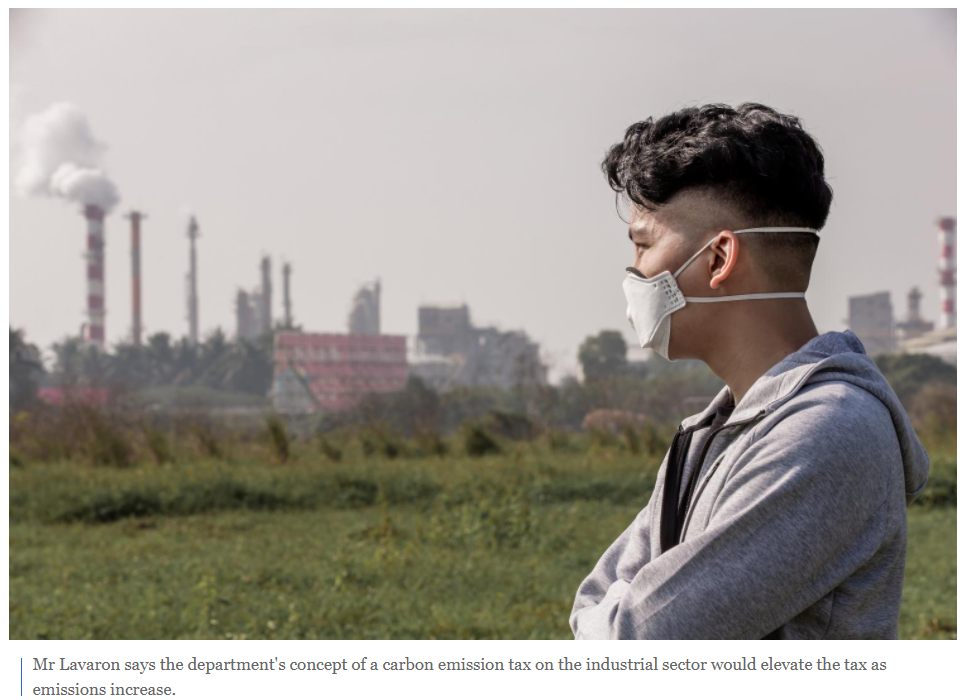Thailand: Excise considers carbon tax
The Excise Department is conducting a study on a plan to levy a carbon emission tax on the industrial sector, aiming to promote environmental protection in Thailand, says director-general Lavaron Sangsnit.
He said such a tax is in line with the trend of declining excise tax revenue from fossil fuels as more people switch to electric vehicles (EVs).
Thailand aims for EVs to account for 30% of total car production in 2025, suggesting the possible decline of the use of fossil fuel-powered vehicles.
The department’s main revenue source is the oil excise tax, which accounts for 40% of its total revenue of around 600 billion baht per year.
Mr Lavaron said the department’s concept of a carbon emission tax on the industrial sector would elevate the tax as emissions increase.
An excise tax on EVs is still being studied by the department, he said.
The current vehicle excise tax structure is based on engine power and carbon dioxide (CO2) emission rates.
For example, a passenger car is subject to 30% tax if its CO2 emission is equivalent or lower than 100 grammes per kilometre.
A 40% tax is applied if CO2 emission exceeds 200 g per km.
Mr Lavaron said the excise tax rate applied to EVs might be the lowest because EVs barely emit CO2.
A department source who requested anonymity said Thailand is an attractive market to foreign EV investors, thanks to the country’s huge auto market.
However, Indonesia can also draw EV investment because it has rare earth elements, key materials for EV battery production.
Source: https://www.bangkokpost.com/business/2191891/excise-considers-carbon-tax


 Thailand
Thailand




